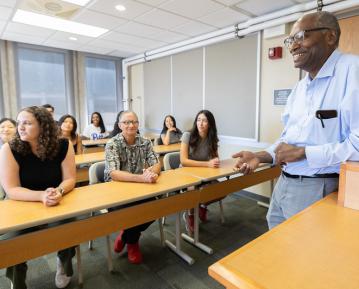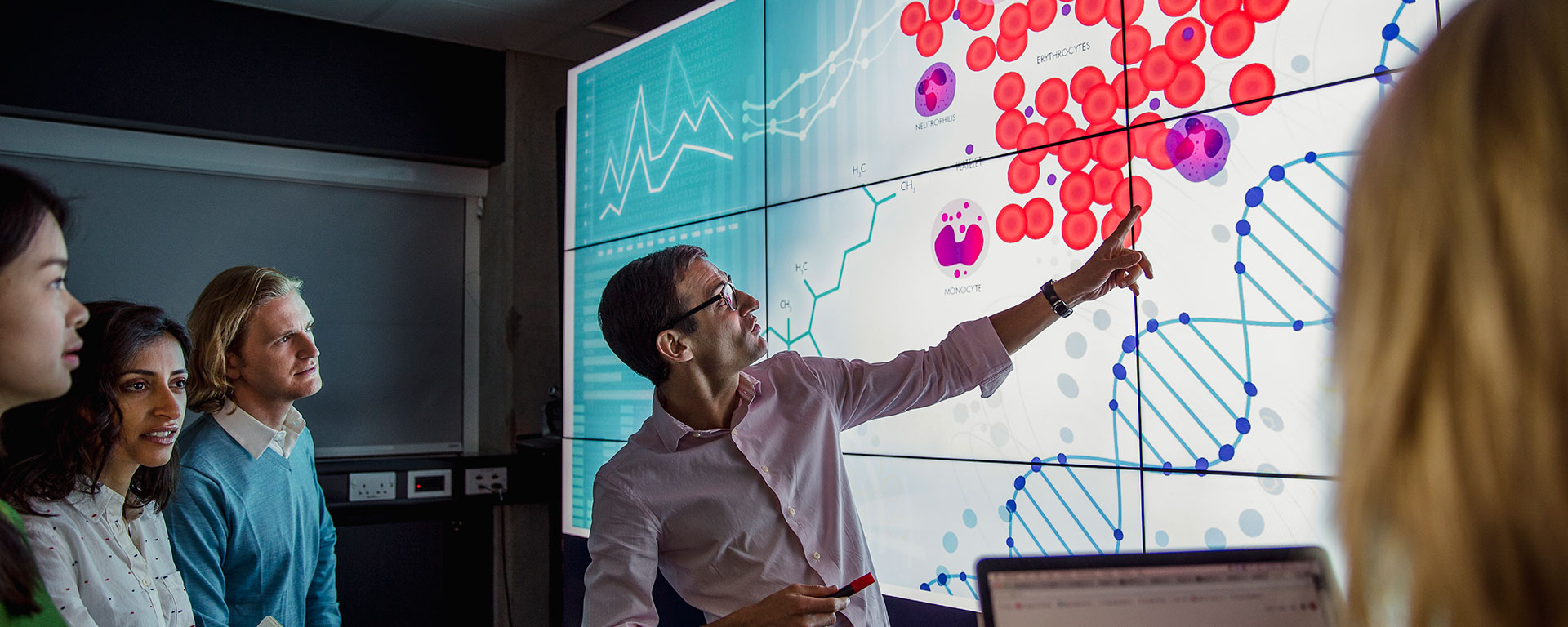How Bioinformatics Tutor can Save You Time, Stress, and Money.
How Bioinformatics Tutor can Save You Time, Stress, and Money.
Blog Article
The Best Guide To Bioinformatics Tutor
Table of ContentsMore About Bioinformatics TutorThe Ultimate Guide To Bioinformatics TutorBioinformatics Tutor Things To Know Before You BuyBioinformatics Tutor Things To Know Before You BuyHow Bioinformatics Tutor can Save You Time, Stress, and Money.
Preliminary job growth is fairly time-consuming, as it includes mindful planning of the subject, structuring of deliverables, and factor to consider of the skills and experience levels of participants. Nonetheless, once a project has been plainly defined and executed, it has the prospective to be recycled in future sessions with only small alterations to reflect updates in the area or fit differences in participant histories. This makes project-based finding out a lasting and effective mentor technique over time, especially in quickly advancing techniques like bioinformatics.To guarantee continuity and reproducibility of understanding, giving common laboratory notebooks-- either electronic or physical-- is critical. These notebooks work as collective logs where trainees can record their development, code, methods, and results throughout the training course. Not only do they strengthen discovering by urging documentation and reflection, but they likewise work as post-course recommendation materials that participants can seek advice from in future study or academic jobs.
Advisors play a necessary duty in the success of project-based courses. Ideally, advisors must be active scientists with a updated and comprehensive understanding of both the theoretical structures and sensible applications of bioinformatics in their particular techniques. Their ability to bridge complicated ideas and real-world execution is crucial in helping students navigate the obstacles of interdisciplinary research study. Mentors additionally act as duty models and inspire trainees to proceed going after careers in computational biology and associated fields.
Bioinformatics Tutor Fundamentals Explained
One more key aspect of the discovering process is providing participants the chance to present their work to others, particularly to an audience past their instant project team. Last discussions or mini-conferences permit trainees to articulate their findings, receive positive comments, and gain confidence in communicating scientific content. This presentation element is usually a preferred amongst pupils, as it validates their initiatives and highlights the real-world importance of their job.
Each model of the program was fine-tuned based on individual responses and progressing best methods in rearing. Bioinformatics Tutor. These adjustments guaranteed that the core objectives-- hands-on learning, collaboration, and applied problem-solving-- remained undamaged while broadening the deepness and breadth of topics covered.
A noteworthy visualization that recorded individual view was a word cloud generated from actions to the 2014 end-of-course study. This visual responses strengthened the program's emphasis on experiential learning and coach support.
The contributions of individuals such as Rustici, G., Orchard, S., Cowley, A., and Twells, R., in addition to other participants of the EBI user-training-working team, contributed in fine-tuning the course framework and material. Their insights assisted shape a inclusive and flexible design that could be adapted to various institutional and local contexts.
The Main Principles Of Bioinformatics Tutor

Jones, Rasmussen, and Moffitt (1997) additionally supported for interdisciplinary learning with joint task work, noting its capability to imitate professional environments and prepare pupils for future scholastic or industry functions. In an extensive review, Thomas (2000) evaluated numerous studies on PBL and wrapped up that pupils not only execute well academically but also develop a deeper understanding of the topic and enhanced synergy abilities.
In the context of bioinformatics education and learning, cutting-edge strategies like class games and simulation-based training have likewise been used. Schneider and Jimenez (2013) introduced the use of interactive video games to teach biological data assimilation, allowing pupils to grasp complex ideas with experiential understanding. This sort of gamification matches the hands-on discovering emphasized in project-based courses by presenting an aspect of fun and competition, which can additionally improve interaction.
Returning to the course talked about below, the lessons learned from the implementation of project-based knowing in a bioinformatics establishing have wider implications for other STEM fields. The technique emphasizes not just technical efficiency, but likewise interaction, collaboration, and critical thinking-- skills that are increasingly valued in both academia and market.
Fascination About Bioinformatics Tutor
The scalability of the training course format also makes it a feasible design for other institutions. With ideal personalization based upon neighborhood Find Out More needs, readily available sources, and individual profiles, the structure can be replicated or adapted for usage in other clinical domains. In addition, the incorporation of organized mentorship and analysis approaches aids ensure regular top quality and quantifiable understanding results.

In conclusion, project-based understanding in bioinformatics offers a powerful method to mentor complicated, interdisciplinary content in such a way that is both accessible and intellectually stimulating. By stressing cooperation, practical application, and critical query, such initiatives not only enhance individual knowing yet additionally add to the farming of a new generation of skilled and ingenious researchers.
Some Of Bioinformatics Tutor

One more secret aspect of the knowing process is providing individuals the opportunity to offer their work to others, specifically to a target market beyond their prompt project team.In the wider instructional literature, project-based knowing (PBL) has been extensively examined and verified as a reliable approach for promoting deep understanding, crucial reasoning, and transferable abilities. Adderley et al. (1975) emphasized the value of task methods in higher education, keeping in mind that they advertise energetic learning and freedom. Schneider and find out here Jimenez (2013) introduced the use of interactive video games to show biological data combination, allowing students to understand intricate concepts via experiential knowing.
Report this page